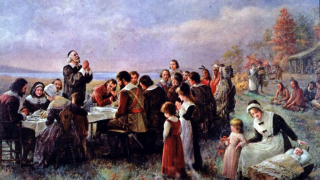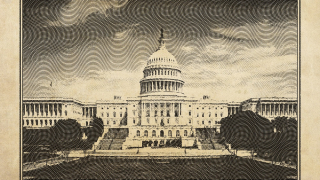The Greatest Generation
Many, if not most, in the States will be familiar with the title given to the generation that fought World War II: The Greatest Generation. As the story goes, they survived the Great Depression, defeated the German Nazis and the militaristic Japanese, and then came home to preside over one of the greatest economic expansions in the history of the world. But what happens when one looks more closely at the details of this story? Are they worthy of the grand title bestowed upon them? Let us look and see.
We have no criticism for anyone’s attempts to survive an economic collapse, so we will begin with a look at American involvement in World War II. It is far from the white-washed and rosy picture that is held up for veneration.
The run-up to Pearl Harbor was mostly a re-enactment of Pres Lincoln’s deceit surrounding Fort Sumter: Pres Roosevelt wanted a war with Japan, and so he got one.
The belief that US military involvement was the key to defeating Germany doesn’t hold up when one considers that Russia lost vastly more soldiers than France, the United Kingdom, and the States combined (about 10,000,000 for Russia vs about 1,000,000 for the last three together).
The behavior of many US soldiers towards civilians during WWII was atrocious, at times even criminal.
In the same vein, the specifically military actions of the US were also questionable, if not criminal, particularly the fire-bombing of German cities and the use of the atomic bomb in Japan despite bringing the latter to a state of surrender months before by using the same fire-bombing tactics on Tokyo and other Japanese cities.
Upon returning home after WWII’s conclusion, the Greatest Generation did indeed experience a surge in economic growth, but what of the more important elements - religion and morality? These fell to a low ebb thanks to the US Supreme Court while the Greatest Generation sat idly by:
-Christian prayer was banned in public schools (1962);
-The Bible was likewise removed (1963); and
-The murder of children in the womb was legalized (1973).
They were so fixated on building their Kingdom of Mammon that many of their children became degenerate, as epitomized in political leaders like Bill Clinton (a sexual reprobate) and George W. Bush (an unapologetic warmonger).
The title ‘Greatest Generation’ cannot be rightly bestowed on such people. Who then could qualify? The answer will scandalize various Marxist cadres of the Left and Right: The Southerners of the Confederate States. Their contrast with the WWII generation is striking.
While the WWII soldiers had the newest and most up-to-date military gear, the equipage of most Confederate soldiers was rather out-of-date and their clothing and rations quite poor. Yet the Confederates sustained a war effort that lasted longer than American involvement in WWII, even while losing a higher proportion of their total population in their contest (about 4% for the Confederacy vs about 0.3% for the US during WWII).
The Confederates conducted themselves in war according to the rules of Christian chivalry, a sterling example of which is General Lee’s General Orders No. 73, given during the Confederate incursion into Pennsylvania (1863).
When the War of Northern Aggression ended, the Confederates did not return home to gleaming industrial cities, eagerly waiting to churn out creature comforts for a citizenry awash with war victory dividends desiring to be spent. They came home to a devastated, barren ruination that would continue to be occupied by their spiteful Northern adversaries for another 12 years.
While some have lamented that Dixie was ‘punished with poverty’ after the War, this was probably a great blessing to her, as it helped keep her from falling into the diabolical snares of materialistic Progress that her Northern neighbors were entangled in. We cannot serve both God and Mammon, the Lord Jesus Christ teaches us (St Matthew’s Gospel 6:24). A great Church Father, St Gregory of Nyssa (+4th century), likewise says, ‘Let us therefore not be depressed, my brethren, if we are deprived of earthly things. For if a man is released from these, he lives in the palaces of Heaven’ (The Beatitudes, trans. Hilda Graef, Ancient Christian Writers series No. 18, Newman Press, NY/NJ, 1954, p. 173).
What St Gregory describes is essentially what happened at the South after her War, where, unlike the WWII generation, more traditional forms of Christianity continued to be the dominant force, to the extent that Dixieland, even in these times of declension, continues to have some of the highest church attendance numbers of all the regions of the current (unnecessary) Union. In addition, many of the efforts to chip away at the godless rulings of Washington City’s Supreme Court are found in the Southern States.
It is also worth noting that the virtues that exemplified the Confederates was reflected in their political leaders after the War. Thus, it is not surprising to find a governor like Francis T. Nichols of Louisiana, a former Confederate general who lost his left arm at the Battle of Winchester and his right foot at the Battle of Chancellorsville, who had the courage to fight to end the corruption of the powerful Lottery mafia by trying to void its charter. Few are those government officials of the WWII generation and its successors who would dare to challenge the graft of the Deep State; sadly, it is the WWII generation itself that created some of the worst aspects of that despicable entity, such as the OSS/CIA.
In short, American conduct in WWII was yet another manifestation of evil from the Yankee Empire. That being so, for folks in the States, there shouldn’t be much debate about which generation is the ‘greatest’: There is more than ample reason to give that title to the people of the Confederacy.











